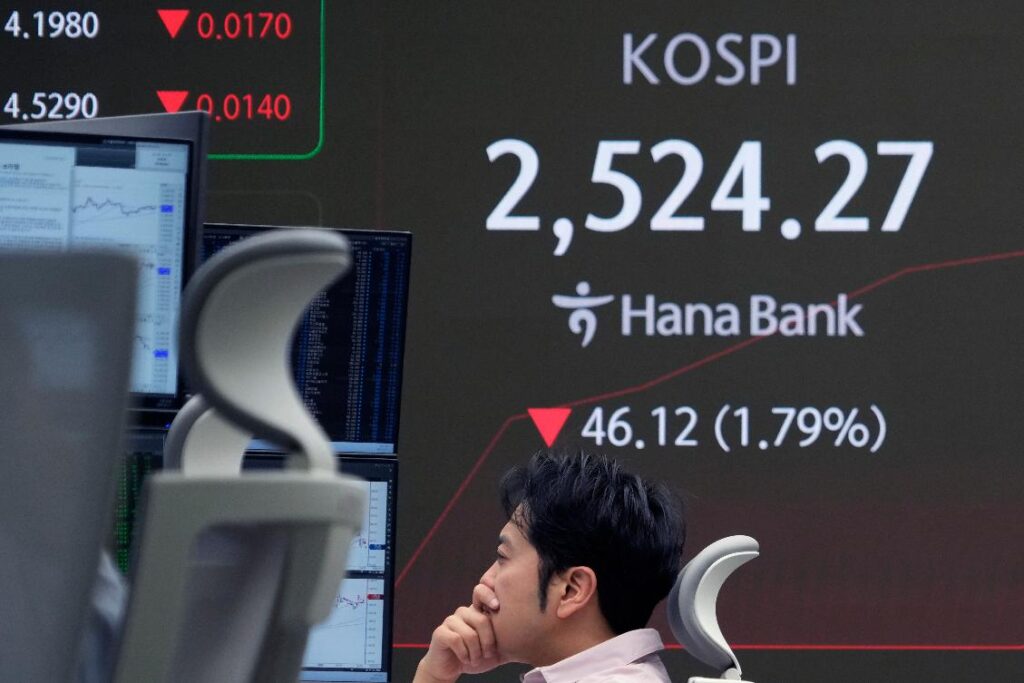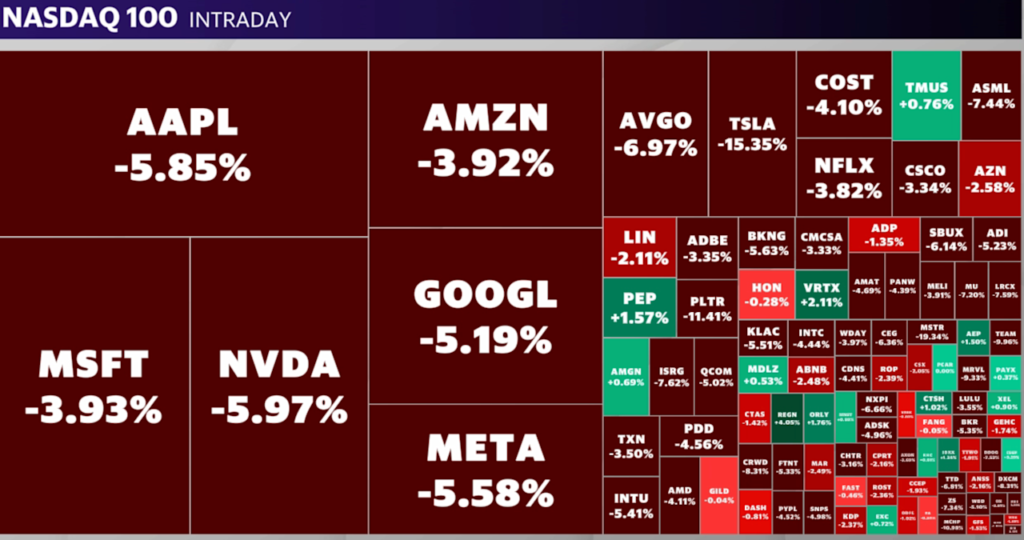
Here’s what happened:
1. Tariff Announcements
- Tariffs are taxes imposed by one country on goods and services imported from another country. The Trump administration recently announced increased tariffs on Chinese goods, raising the tariff rate from 10% to 20%. Tariffs are often used as a trade policy tool to put economic pressure on another country. In this case, the U.S. administration is targeting China, which has been a source of ongoing trade tensions.

2. Stock Market Reaction
- Market sell-off refers to a sharp and widespread decline in stock prices across various sectors. When the tariff announcement was made, investors became concerned about the economic impact of these tariffs, which could affect U.S. businesses, trade relations, and global economic stability.
- Stock markets, particularly in the U.S., reacted negatively. For example, the S&P 500 index dropped by 1.8%, and the Nasdaq-100 fell by 2.6%. Investors worried that these tariff increases would lead to higher costs for businesses, potential retaliatory tariffs from other countries (especially China), and a slowdown in international trade.

3. Reasons for the Sell-Off
- Uncertainty: Investors tend to avoid markets where there is uncertainty, especially regarding trade relationships. The increased tariffs raised fears of a trade war between the U.S. and China, which could disrupt supply chains and harm corporate earnings.
- Impact on Specific Sectors: Certain industries, particularly those reliant on imports or exports (like manufacturing, technology, and agriculture), are more vulnerable to tariffs. For example, tech stocks were hit hard, as companies like Nvidia, Palantir, and Tesla depend heavily on China for both sales and parts.
- Global Effects: The market sell-off wasn’t limited to U.S. stocks. Asian markets also saw declines, as concerns about a trade war spread globally.
4. Investor Sentiment
- The news led to a panic or fear among investors, as tariffs can slow down global trade, increase prices on goods, and lead to a chain reaction of economic disruptions. As a result, many investors rushed to sell their stocks to avoid further losses, which exacerbated the market downturn.
5. Long-Term Concerns
- In addition to immediate market losses, investors were also worried about the long-term consequences of the tariffs. The risk of a protracted trade war could reduce global economic growth and lead to higher inflation, which could, in turn, lead to economic stagnation in both the U.S. and globally.
In summary, the market sell-off was a response to the uncertainty created by the tariff increases, which raised concerns about the potential for a wider trade war and its economic consequences.
